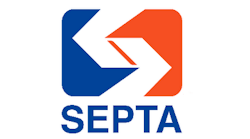City of Philadelphia, Pa., awarded William Penn Foundation grant for zero-fare pilot program
The William Penn Foundation has awarded the city of Philadelphia, Pa., a $578,340 grant from for the city’s zero-fare pilot program. The grant was approved at the foundation’s most recent meeting to support the pilot program’s evaluation. The pilot, launched by the managing director’s office in August 2023, is a city-funded transit benefit offered to a targeted number of Philadelphians living at or below poverty level. The program was developed in partnership with the Southeastern Pennsylvania Transportation Authority (SEPTA) and community-based organizations.
The city says the goal of zero-fare is to make it easier and more affordable for residents with limited resources to get to work or job interviews, meet caregiving responsibilities and access health, education and recreation opportunities. Zero-fare has distributed nearly 25,000 cards since launching in August 2023 and has already recorded nearly 2 million swipes by participants in the pilot. Preliminary data analysis shows transit activity across the entire city and on all modes.
“Access to public transportation is essential to help connect more people with jobs and services across the city,” said Shawn McCaney, executive director of the William Penn Foundation. “We applaud the city of Philadelphia for launching this important initiative and expect the evaluation of the pilot will help identify opportunities to continue to strengthen this program into the future.”
The city, in partnership with the Georgetown University Better Government Lab and the Urban Institute, will evaluate program enrollment and outcomes for participants receiving the fully subsidized transit benefit during the two-year pilot period. Data from the evaluation will be shared with city leadership team and the public to guide decisions moving forward.
“We are thankful to the William Penn Foundation for supporting the evaluation of the pilot so we can examine the data that will help us assess the effectiveness and value of zero-fare and make decisions based on solid research and data,” said City of Philadelphia Mayor Cherelle L. Parker. “We already know paying for transportation is difficult for many Philadelphians and can limit their access to city resources such as health care and social services and job training programs that can ensure economic opportunity for all. We’re hoping zero-fare can be a city benefit that helps more residents achieve a great quality of life.”
The city notes Similar fare-free transit programs in peer cities have shown a range of benefits, including better access to social services, medical support and employment and educational opportunities.
Zero-fare program participants are randomly selected based on program eligibility and automatically enrolled in the program. There is no application process. Zero-fare SEPTA Key cards are mailed directly to program participants following several rounds of outreach by city staff who are part of the Office of Community Empowerment and Opportunity..
The city also partners with community-based organizations serving immigrant and refugee communities to ensure access across the diverse populations in Philadelphia. Working with these external partners creates an alternative enrollment pathway for residents not eligible through automatic enrollment due to documentation status.
“SEPTA is proud to partner with the city on one of the most robust and far-reaching zero-fare initiatives in the country,” said SEPTA general manager and CEO Leslie S. Richards. “The results to date show that people in the zero-fare pilot are already benefiting from access to public transportation. The evaluation will be a tool that we can all use to enhance and grow the program.”
As zero-fare are prepares for the second year of the two-year pilot, city staff continue to do outreach and engage with selected program participants via mail, text and phone to share information and answer any questions. Due to the random selection of the program, residents are not able to apply for the benefit currently.





